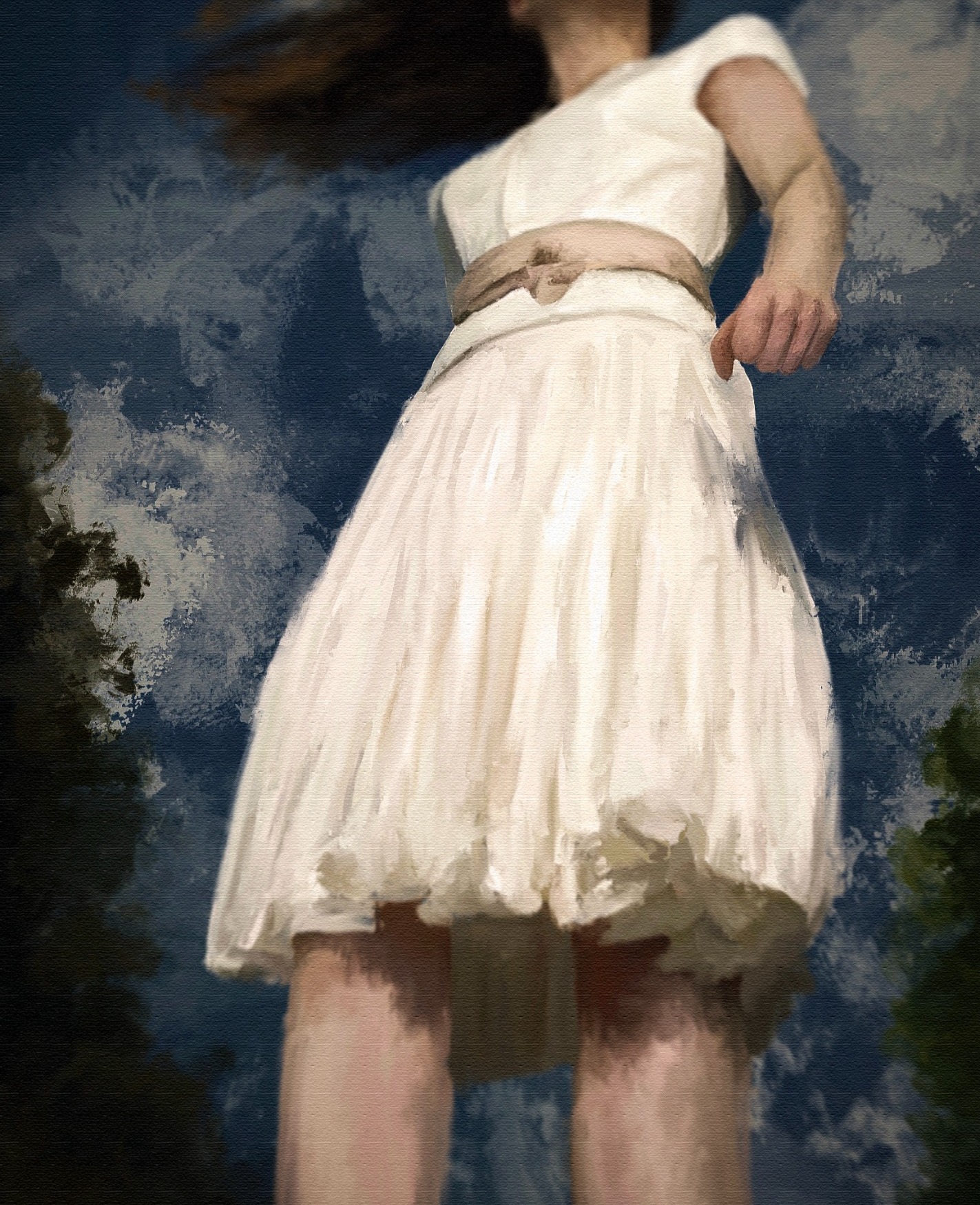
Empyrean (2023)
Empyrean (2023) explores the tension between elevation and anonymity. Cropping the figure’s head transforms divinity into embodiment, allowing Georgina M. Cox to reimagine transcendence as something physical, grounded, and defiantly human.
⤷ In Empyrean, I wanted to explore what happens when reverence is stripped of its face. By removing the head from the composition, the figure becomes both universal and unknown — a symbol rather than an individual. The focus shifts to the body, its posture, and the way light touches it, revealing strength through simplicity.
The upward angle creates a sense of awe. The viewer looks from below, as though standing at the foot of something monumental. Yet the cropped frame denies access to identity, forcing attention to settle on movement, fabric, and form. I wanted the piece to feel almost sculptural, like an anonymous saint rendered in living flesh.
The white dress carries much of the painting’s emotional weight. It billows softly against the darkened sky, holding both innocence and defiance. The folds of fabric catch the light unevenly, turning the body into a vessel of illumination. I was thinking about how holiness has so often been coded through purity, and how reclaiming that imagery can shift its meaning from passive to powerful.
The deep blues and whites of the background create a sense of ascension without literal flight. The figure stands firmly, yet the composition feels elevated — suspended between the earthly and the divine. The contrast between groundedness and grace became central to the painting’s atmosphere.
Thematically, Empyrean continues my exploration of modern spirituality and the female form. It examines how divinity can exist within the physical, not apart from it, and how power can be expressed without identity or face. The anonymity invites projection; the viewer brings their own sense of self into the space the figure leaves behind.
Ultimately, Empyrean (2023) is about embodiment as transcendence. It’s about reclaiming the sacred image, not as something distant or perfect, but as something lived and felt through the body.
0 Comments Add a Comment?